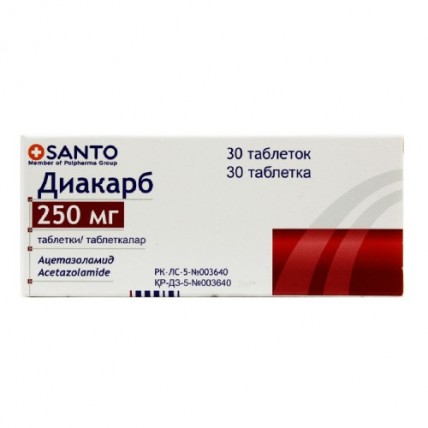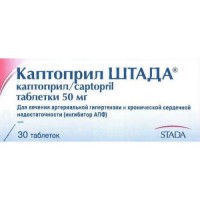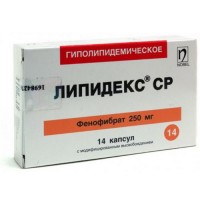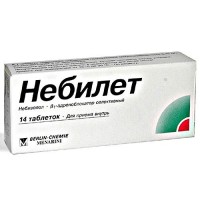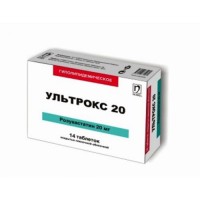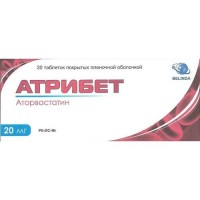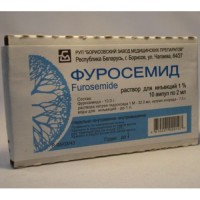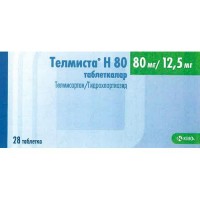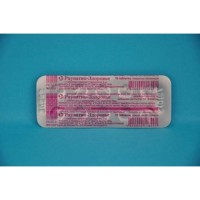Diacarb (Acetazolamide) 250 mg, 30 tablets
- $19.00
What is Diacarb (Acetazolamide)?
Diacarb, with the active ingredient Acetazolamide, is a medication primarily used to treat certain eye conditions like glaucoma, manage fluid retention (edema), and support epilepsy treatment.
It is also effective in reducing intracranial pressure and managing sleep apnea due to its impact on acid-base balance.
Available in 250 mg tablets, this medicine is widely utilized for its carbonic anhydrase inhibiting properties.
How does Diacarb (Acetazolamide) work?
Diacarb works by inhibiting the enzyme carbonic anhydrase, which plays a critical role in various bodily functions, including fluid regulation in the eyes and kidneys.
This action helps reduce fluid buildup in conditions like glaucoma, where it lowers intraocular pressure, and in edema, where it promotes diuresis (increased urine production).
Additionally, Acetazolamide helps manage epilepsy by influencing abnormal electrical activity in the brain, and can assist in lowering intracranial pressure in certain medical conditions.
What is Diacarb used for?
Diacarb is used in the treatment of several conditions, including:
- Edema: Helps reduce fluid retention due to heart failure, medications, or other causes.
- Glaucoma: Effective for both open-angle and secondary glaucoma, it reduces pressure inside the eye.
- Epilepsy: When combined with other antiepileptic drugs, Diacarb can help manage seizures.
- Intracranial hypertension: Reduces pressure within the skull, often used for benign or post-surgery cases.
How should Diacarb be taken?
Diacarb tablets are taken orally, and the dosing depends on the condition being treated:
- For edema: 250-375 mg once daily in the morning. Diacarb is most effective when taken every other day or for two consecutive days, followed by a break.
- For glaucoma: The usual dose is 250 mg 1-4 times daily, depending on the severity of intraocular pressure.
- For epilepsy: Adults take 250-500 mg daily, while children receive smaller doses based on age.
- For intracranial pressure: 250 mg once or twice daily, or as prescribed, depending on the patient's needs.
If a dose is missed, do not double up the next dose—simply take the next scheduled dose as directed.
What are the possible side effects of Diacarb?
Common side effects of Diacarb may include:
- Dizziness or drowsiness
- Loss of appetite, nausea, or diarrhea
- Headache and fatigue
- Tingling sensations (paresthesia)
In rare cases, serious side effects like metabolic acidosis, liver or kidney issues, allergic reactions, or electrolyte imbalances may occur. If you experience any severe symptoms, such as difficulty breathing, swelling, or a rash, seek medical attention immediately.
Who should not take Diacarb?
Diacarb should not be used by individuals who are:
- Allergic to Acetazolamide or other sulfa drugs.
- Suffering from severe liver or kidney problems.
- Diagnosed with adrenal gland issues or metabolic acidosis.
- Pregnant or breastfeeding, unless specifically advised by a doctor.
Can Diacarb interact with other medications?
Yes, Diacarb can interact with several medications, potentially increasing their effects or side effects. It can interact with:
- Diuretics or medications affecting potassium levels
- Anticonvulsants like phenytoin or primidone
- Aspirin and other salicylates
- Antidiabetic medications (it can affect blood sugar levels)
Always inform your healthcare provider about all medications and supplements you are taking to avoid potential interactions.
How should Diacarb be stored?
Store Diacarb in a dry, cool place, away from direct sunlight, at temperatures below 25°C (77°F).
Keep it out of reach of children, and do not use it after the expiration date printed on the package.
